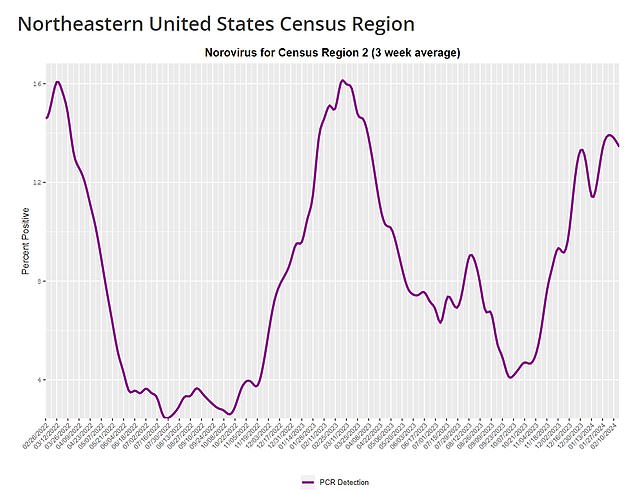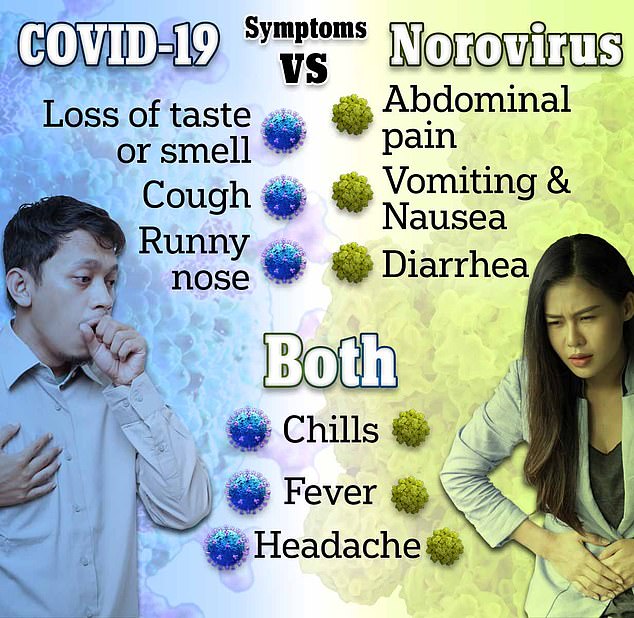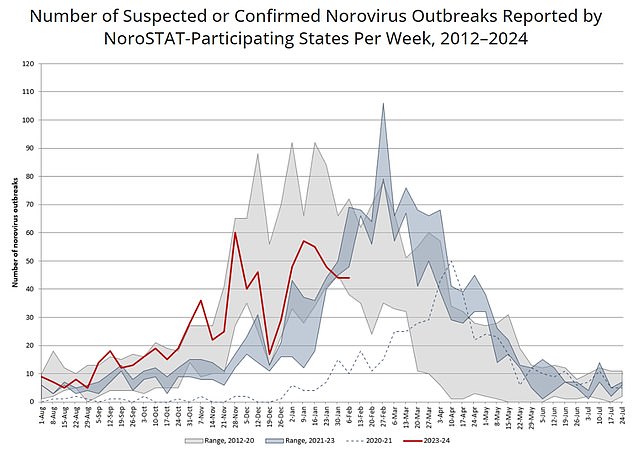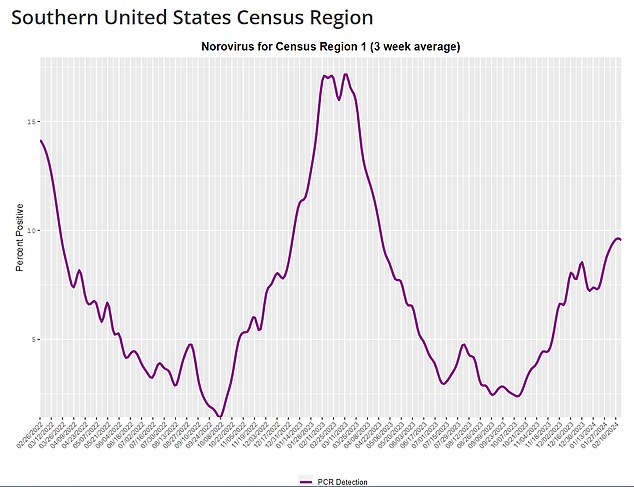Stomach virus causing severe diarrhea hits northeastern US – causing so much absenteeism it’s ‘putting daily life on hold’
A stomach flu that causes severe diarrhea and vomiting is spreading rapidly across the Northeast, putting ‘lives on hold’ in some areas.
The latest data from the Centers for Disease Control and Prevention (CDC) shows that in early February, nearly 14 percent of tests in the region were positive for norovirus — up from about 4 percent in November before the outbreak began.
Nationally, cases are also rising, with 12 percent of swabs now detecting the virus, compared to 9 percent in November. The number of cases is rising fastest in the South.
Locals report that many children do not go to school because of stomach flu in their area, which disrupts their daily lives.
The above map highlights the northeastern region of the US currently experiencing a norovirus outbreak

This graph shows how cases have increased by 15 percent in recent weeks. There is a dip in the most recent data, but the data for this is incomplete and the line is expected to rise as more infections are recorded

The above shows the difference in symptoms between Covid and norovirus
About 21 million Americans — or six percent of the population — fall ill from norovirus each year, statistics show, while 109,000 people end up in the hospital.
Cases normally peak around February and March, among other ailments, as cold weather forces people to spend more time indoors.
The latest data for the North East showed the test positivity rate – the proportion of swabs done in hospitals that are positive for the virus – was 13.9 per cent in the week to February 3, compared to 12 per cent two weeks earlier.
Data from September to early February this year shows that Minnesota and Wisconsin were the hardest hit by norovirus – with both reporting more than five outbreaks during this period.
They are followed by California, Florida, Ohio and Virginia, all of which have reported four outbreaks so far.
But experts say cases are now also starting to skyrocket in states in the Northeast — including New York, Pennsylvania and New Jersey.

The red line shows the number of outbreaks recorded nationally this year compared to previous years. The disease falls within the range of outbreaks from 2012 to 2020, before the Covid pandemic

The above shows how the number of infections in the southern United States is increasing rapidly, although they are still below last year’s levels

Dr. John Whyte, of WebMD, told people to wash their hands to avoid becoming infected with the virus
Norovirus spreads easily through contact with contaminated surfaces and then by touching the area around the mouth or nose.
Infections usually cause gastrointestinal complaints, such as abdominal pain and watery diarrhea, but also fever and headache.
In the vast majority of cases, symptoms resolve within two days, requiring little treatment other than bed rest.
Dr. John Whyte, WebMD’s chief medical officer, told us ABC7 that the best way to prevent infection was to wash your hands.
He said: ‘It’s very much about washing your own hands.
“While you’re in the bathroom, you want to wash your hands with soap and water for about 20 to 30 seconds.”
‘You also want to encourage people to stay at home if they are sick. I know it’s hard for parents, but if someone feels sick, he or she should stay home.”
In New Jersey, Irving Primary School in Highland Park – which has about 300 students – recently closed due to gastrointestinal illnesses.
The school was thoroughly cleaned but then quickly reopened so that classes could resume.
It comes after the flu and RSV season arrived two months earlier than expected as viruses are still out of line with normal patterns due to the Covid pandemic.
